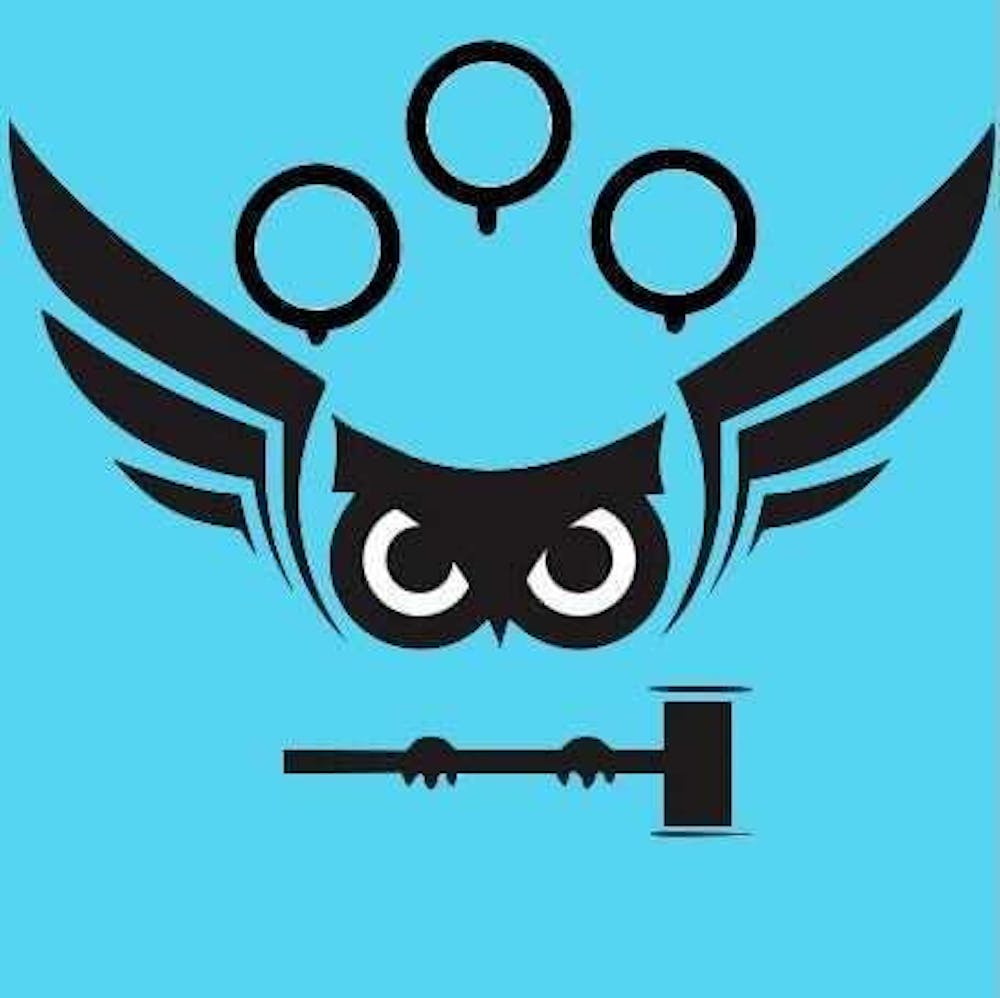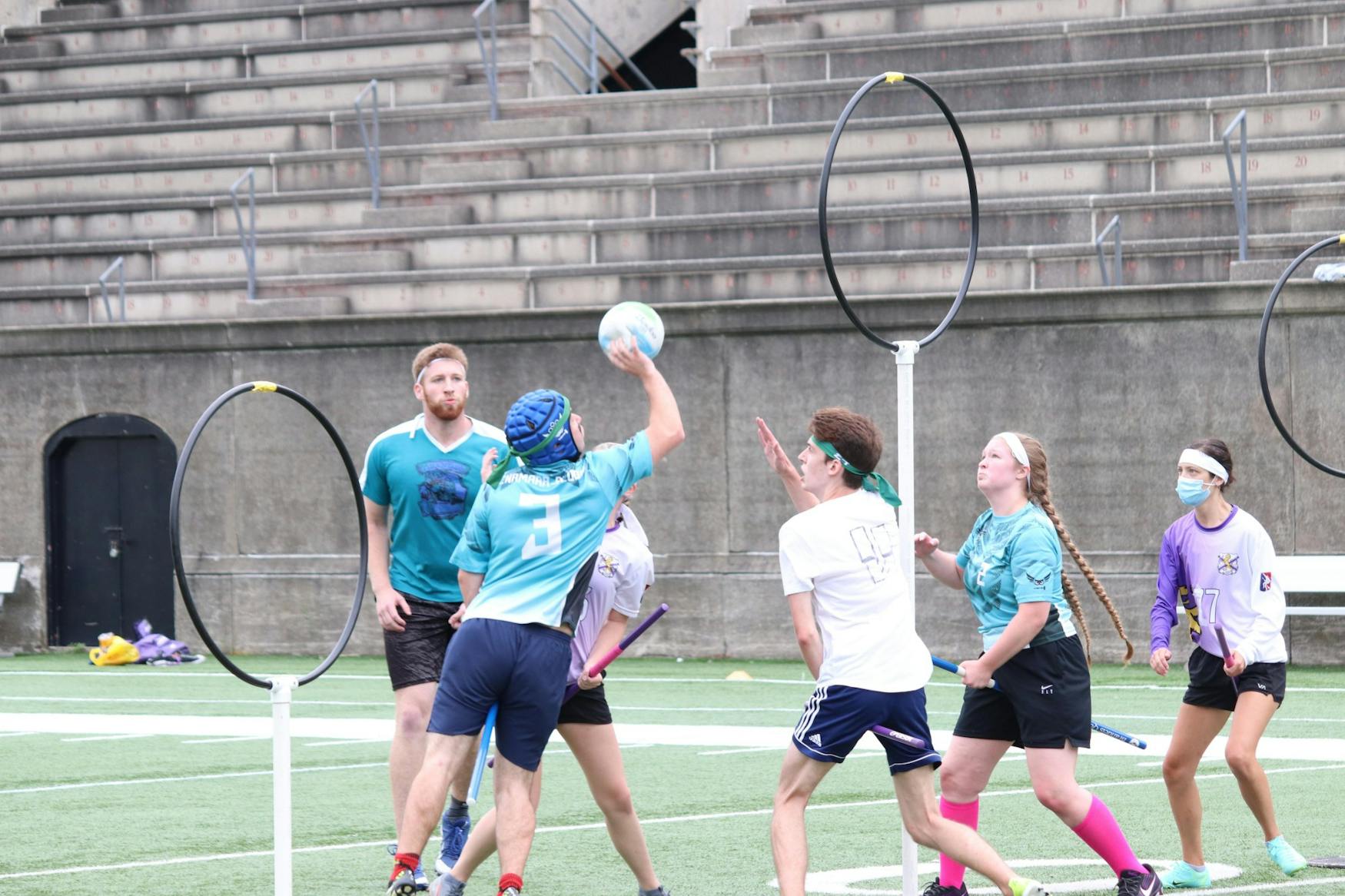A sport from the wizarding world comes to campus
The Justice spoke to the Brandeis Quidditch team to learn more about the sport.
It may come as a surprise, but Brandeis has a Quidditch team. Yes, you heard that right — the sport is no longer reserved for the wizarding world of “Harry Potter.” While lacking in witchcraft and wizardry, the University’s team is very real and a welcoming space for anyone who wishes to join. Founded in 2010, The Judges’ Quidditch team is one of many club sports, which are independent and student-run at Brandeis. They play against other universities in the college division of US Quidditch and have previously gone to nationals. Brandeis Quidditch, however, is about more than just playing a sport. It’s about inclusivity, teamwork and — when it comes down to it — having a good time.
Because the players’ feet stay firmly on the ground, you may be wondering how exactly the game is played. While not identical to the games played in the “Harry Potter” series, the rules are similar, allowing players and spectators alike to take part. The Justice spoke to Quidditch team secretary Bryn Zilch ’24 on Sept. 14 during a practice to learn about the game. “Basically, you’ve got a game of handball with a game of dodgeball running around the middle, with a game of flag football in the background,” Zilch said. The team is made up of seven players: three Chasers, who score points by throwing the Quaffle (a volleyball) through one of three hoops on a given side of the field; two Beaters, who attempt to thwart the players on the other team by hitting them with Bludgers (dodgeballs); a Keeper, whose job is to stop the other team from scoring; and finally, the Seeker, whose responsibility is catching the ever-elusive Snitch (more on that later). There are many aspects of the game to keep track of, each one more entertaining than the last.
While the players do not get to fly around any of the name brand brooms from the “Harry Potter” series like a Firebolt or a Nimbus Two-Thousand, they simulate the experience. Each player must keep their plastic pipe “broom” between their legs at all times and if it falls, they must run back to their team’s post and touch it to tag back in. The teams’ posts consist of three hoops, used for scoring goals on either side of the field. It’s also a full contact sport, meaning that tackling is very much allowed. There are many other rules, but Brandeis Quidditch is not only about regulations: they play on the team to make friends and to have fun — but also to win.
The most notable element of Quidditch is the Snitch: the object which the Seeker is tasked with catching. In the “Harry Potter” books, the Snitch is a walnut-sized golden sphere with wings that flies around the field. In USQ, however, the Snitch works a bit differently. Its role is played by a runner who dresses in yellow with a “tail” — a golf ball in a sock — attached to the back of their shorts. The Seeker’s job is to catch said “tail,” for which they earn points. It’s quite the sight, and that part of the game is a fan favorite according to many players on the team.

SNITCH: A player attempts to “catch the snitch.”
Brandeis’ Quidditch team is a welcoming one, with a lot of comradery and a lot of heart. “When we were [doing warmups], everyone was cheering each other on. Everyone is super nice,” Caitlyn Pennie ’25, a Chaser, said. According to the official rules, anyone is welcome and encouraged to join the team, regardless of year, gender or athletic ability.
In general, the US Quidditch league advocates for gender inclusivity. While J.K. Rowling, the author of the “Harry Potter” books, is known for her transphobic statements, the sport veers in the opposite direction. The league has condemned Rowling’s comments and spoken out against anti-trans laws, such as those in Florida and Utah. In addition, no tournaments, regionals or other major games are held in states with anti-trans laws. The game itself is gender inclusive — no more than four players of one gender can be on the field at once. On the US Quidditch website, under Title 9 ¾, it cites their aims to, “Use the growing popularity of quidditch to challenge the way our world thinks about gender in sports and athletics,” and “Inspire other sports leagues and athletes to reconsider their gender regulations and in turn effect broader positive change in gender equality worldwide.” The Judges stay true to these goals, making sure that every player is respected and welcomed into their ranks regardless of their gender.

LOGO: A picture of the Judges’ Quidditch team logo.



Please note All comments are eligible for publication in The Justice.